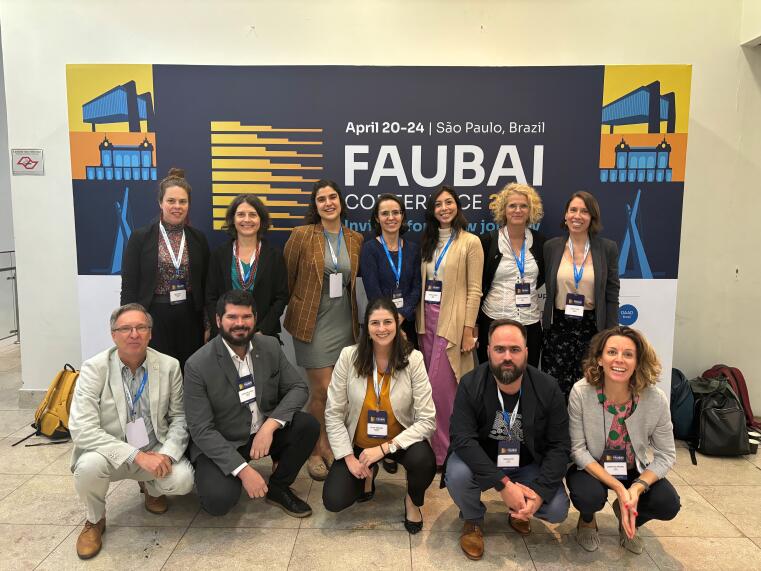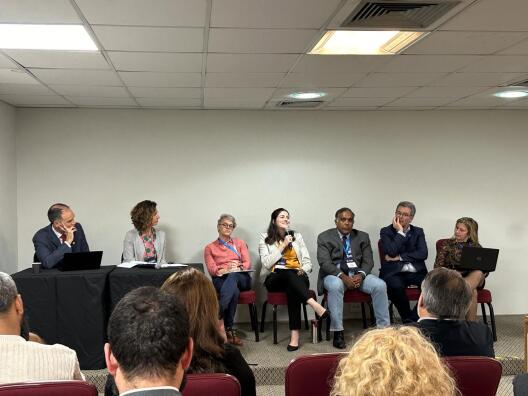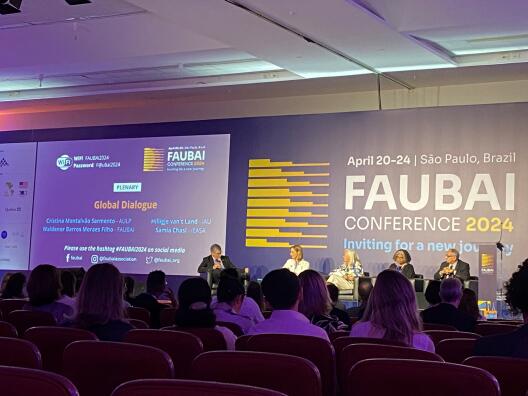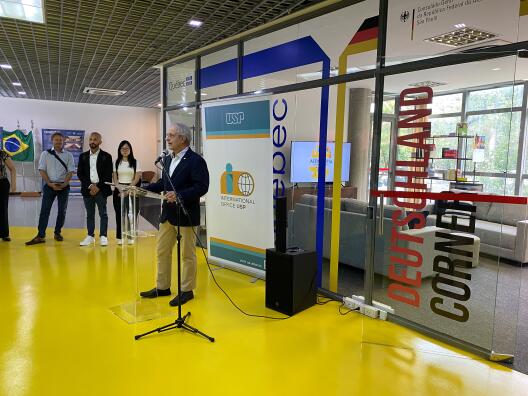FAUBAI annual conference attracts a large German delegation

The Brazilian Association for International Education, FAUBAI, held its 36th conference at the end of April in São Paulo. The organisation, which brings together executives and heads of international affairs from Brazilian higher education institutions, also opens its conference to foreign participants interested in the debates promoted throughout the programme and also in the networking that the event provides.
The Brazil Centre of the University of Münster was present throughout the four-day event, represented by its managing director Anja Grecko Lorenz and the head of the office in São Paulo, Laura Redondo. They were part of a large delegation of German institutions that has been actively involved in FAUBAI's annual conferences for years, including organising panels and round tables.

One of the proposals prepared by a group of supporting institutions from the German Centre for Science and Innovation in São Paulo (DWIH-SP) was a round table entitled "Soft Power and Higher Education: A Look at the Current Role and Relevance of HEI in the context of 'Science Diplomacy'". Moderated by Dr Christina Peters, director of the DFG's Latin America office, and Prof Dr Nicolas Maillard, from the Federal University of Rio Grande do Sul, representatives from Brazilian and Uruguayan universities, as well as the Consulate General of France in São Paulo, debated with Laura Redondo the limitations and possibilities of higher education institutions as relevant actors in science diplomacy, to a packed and interested room.

The diverse programme allowed for high-level debates between the panellists and the audience on topics such as democratic values in international networks, institutional policies, the internationalisation of research and the social impact of internationalisation, among others. The intensive exchange with Brazilian and foreign colleagues during the panel discussions and during the coffee breaks, allowed the Brazil Centre to closely follow the most important trends in the internationalisation of higher education and to discuss them directly with its local partners.

After the end of the conference, the German delegation also took part in an important event on 24 April: the inauguration of the Deutschland Corner in the pavilion of the International Cooperation Office (AUCANI) at USP. In the presence of the German Deputy Consul General in São Paulo, Joseph Weiss, and the director of the Martius-Staden Institute, Mauritius Reisky von Dubnitz, the Vice-Rector for Internationalisation, Prof. Dr. Sérgio Proença, welcomed guests to the ceremony, highlighting in his speech the importance of collaboration with Germany for the University of São Paulo - which dates back to its foundation in 1934. The space, which serves to publicise German culture, particularly in the academic context, can be used for small events, meetings and activities by appointment.

